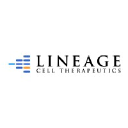Companies
Discover all trending biotech companies
Discover all trending biotech companies

Company Research Platform
Annual Revenue
$ 8,900,000
Global Employees
77
R&D Investment
3100000
The Ophthalmology segment is centered around the development of OpRegen, a retinal pigment epithelium (RPE) cell replacement therapy currently in Phase I/IIa clinical trials for the treatment of dry age-related macular degeneration (AMD). This program focuses on utilizing allogeneic cell therapies to replace damaged or dysfunctional RPE cells, aiming to restore visual function in patients with advanced AMD. Research and development activities include optimizing cell differentiation protocols, enhancing cell delivery methods, and conducting preclinical and clinical studies to evaluate the safety and efficacy of OpRegen. The therapeutic area addresses a significant unmet need in ophthalmology, with the potential to improve vision and quality of life for millions affected by dry AMD. Future opportunities involve expanding clinical trials to larger patient populations and exploring combination therapies to enhance treatment outcomes.
The Neurology segment is focused on the development of OPC1, an oligodendrocyte progenitor cell therapy in Phase I/IIa multicenter clinical trial for the treatment of acute spinal cord injuries. This program aims to promote nerve regeneration and functional recovery by transplanting OPCs into the injured spinal cord. Research and development efforts include refining cell sourcing and expansion techniques, optimizing cell delivery methods, and conducting preclinical and clinical studies to assess the safety and efficacy of OPC1. The therapeutic area addresses a critical unmet need in neurology, with the potential to improve motor function and quality of life for individuals with spinal cord injuries. Future opportunities involve expanding clinical trials to include chronic spinal cord injuries and exploring combination therapies to enhance nerve regeneration.
The Oncology segment is dedicated to the development of VAC2, an allogeneic cancer immunotherapy of antigen-presenting dendritic cells, currently in Phase I clinical trial for the treatment of non-small cell lung cancer (NSCLC). This program aims to stimulate the patient's immune system to recognize and destroy cancer cells by using dendritic cells to present tumor-associated antigens. Research and development activities include optimizing dendritic cell differentiation and antigen loading protocols, enhancing cell delivery methods, and conducting preclinical and clinical studies to evaluate the safety and efficacy of VAC2. The therapeutic area addresses a significant unmet need in oncology, with the potential to improve survival rates and quality of life for patients with NSCLC. Future opportunities involve expanding clinical trials to other cancer types and exploring combination therapies with checkpoint inhibitors and other immunomodulatory agents.